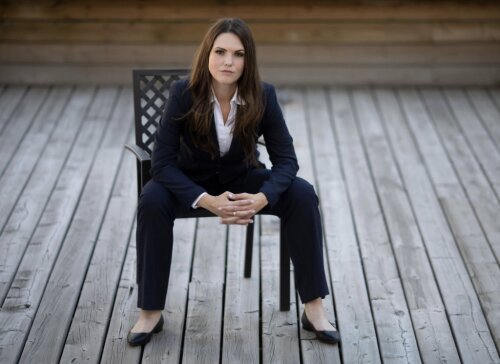Best Faith-Based Law Lawyers in Calgary
Share your needs with us, get contacted by law firms.
Free. Takes 2 min.
List of the best lawyers in Calgary, Canada
About Faith-Based Law in Calgary, Canada
Faith-Based Law in Calgary, Canada refers to the legal practices and applications concerning religious beliefs, practices, and institutions. This area of law often involves balancing the rights and freedoms of individuals and religious groups with public policy, human rights legislation, and the secular legal framework. In Calgary, a culturally diverse city, Faith-Based Law may involve various religions and intersect with issues such as religious accommodations, family law, employment law, and the operation of religious organizations.
Why You May Need a Lawyer
There are several common situations where individuals or groups may require legal assistance in Faith-Based Law:
- Seeking accommodations for religious practices in the workplace or education settings
- Navigating family law issues, such as marriage, divorce, or custody, where religious practices are involved
- Addressing disputes within religious organizations or communities
- Handling tax issues or charitable status for religious non-profit entities
- Dealing with discrimination based on religious beliefs or practices
A lawyer specializing in Faith-Based Law can provide guidance, representation, and mediation in these complex areas.
Local Laws Overview
Calgary is governed by federal and provincial laws that underscore freedom of religion and protection from discrimination based on religious beliefs. Key legal aspects relevant to Faith-Based Law in the region include:
- Human Rights Legislation: Alberta’s Human Rights Act prohibits discrimination on the basis of religion in various areas, including employment and access to services.
- Charitable Organizations: Religious groups may qualify for tax-exempt status under federal law, provided they comply with specific regulatory requirements.
- Family Law: Alberta’s family law framework allows for religious considerations in matters like marriage and divorce; however, civil law prevails.
- Labour Law: Employers in Calgary must accommodate employees’ religious practices unless it causes undue hardship.
Frequently Asked Questions
What is Faith-Based Law?
Faith-Based Law pertains to how religious principles and practices intersect with secular law, often requiring legal expertise when conflicts or issues arise.
Can a religious belief exempt me from certain laws?
While religious beliefs are protected under Canadian law, exemptions are limited and typically do not excuse adherence to laws essential for public welfare and safety.
How do I ensure my religious organization maintains its charitable status?
Compliance with the Canada Revenue Agency’s regulations for non-profit organizations, including annual filings and proper bookkeeping, is essential for maintaining charitable status.
Can I dictate the terms of a marriage or divorce based on my religion?
While religious practices can inform private decisions, legal marriages and divorces are governed by civil law. Parties must comply with Alberta's family law statutes.
What should I do if I face workplace discrimination due to my religious beliefs?
File a complaint with your employer’s human resources department and, if unresolved, consider lodging a complaint with the Alberta Human Rights Commission.
How can I find a lawyer specializing in Faith-Based Law?
Contact local law societies, consult legal directories, or seek referrals from community organizations for lawyers with expertise in Faith-Based Law.
Can I start legal proceedings against a religious organization in Calgary?
Yes, as long as there is a legal basis for the claim, individuals can initiate legal action against religious organizations.
How do I address conflicts in religious communal living arrangements?
Mediation and legal advice can help resolve conflicts; consider engaging a lawyer who understands both faith-based and secular legal principles.
Are religious days off entitled to legal accommodation at work?
Employers must accommodate religious observances, unless it causes undue hardship, under Alberta’s Human Rights Act.
What is the role of Faith-Based Law in education?
Faith-Based Law in education involves accommodating the religious needs of students and staff, such as observance days and attire, in compliance with provincial policies.
Additional Resources
For additional support, consider reaching out to the following organizations:
- Alberta Human Rights Commission: Offers resources and avenues for addressing discrimination complaints.
- Calgary Legal Guidance: Provides free legal advice and information to those in need.
- Canada Revenue Agency: For information on taxation and compliance for religious organizations.
- The Law Society of Alberta: Assists in finding qualified lawyers in your area.
Next Steps
If you require legal assistance in Faith-Based Law, taking the following steps can be beneficial:
- Identify and document your specific legal issue.
- Consult resources or organizations mentioned here for preliminary advice.
- Contact an experienced lawyer in Faith-Based Law via local law societies or directories.
- Prepare necessary documentation and information for your legal consultation.
- Follow your lawyer’s advice and stay informed about your legal rights and obligations.
Lawzana helps you find the best lawyers and law firms in Calgary through a curated and pre-screened list of qualified legal professionals. Our platform offers rankings and detailed profiles of attorneys and law firms, allowing you to compare based on practice areas, including Faith-Based Law, experience, and client feedback.
Each profile includes a description of the firm's areas of practice, client reviews, team members and partners, year of establishment, spoken languages, office locations, contact information, social media presence, and any published articles or resources. Most firms on our platform speak English and are experienced in both local and international legal matters.
Get a quote from top-rated law firms in Calgary, Canada — quickly, securely, and without unnecessary hassle.
Disclaimer:
The information provided on this page is for general informational purposes only and does not constitute legal advice. While we strive to ensure the accuracy and relevance of the content, legal information may change over time, and interpretations of the law can vary. You should always consult with a qualified legal professional for advice specific to your situation.
We disclaim all liability for actions taken or not taken based on the content of this page. If you believe any information is incorrect or outdated, please contact us, and we will review and update it where appropriate.











